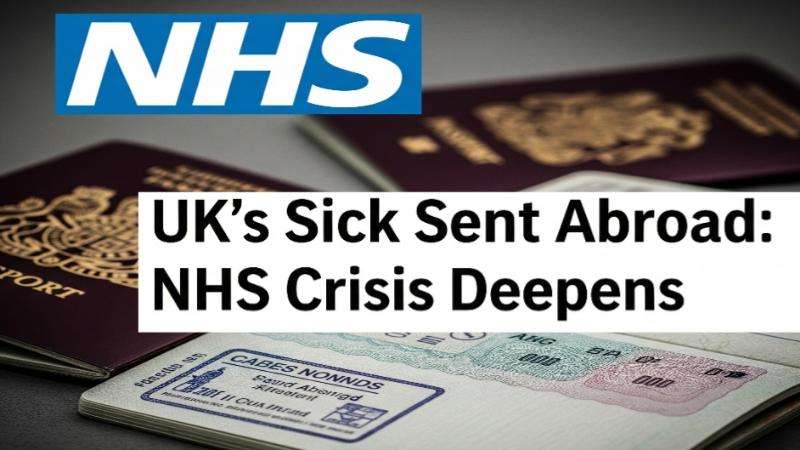President Donald Trump’s administration is navigating a critical juncture this week, with an impending Senate vote on his landmark "One Big, Beautiful Bill" – a comprehensive domestic policy package designed to solidify his control over the Republican party. This intense domestic legislative push is unfolding against a dramatic backdrop of escalating Middle East tensions, where Trump’s aggressive rhetoric towards Iran recently threatened war, only for him to seemingly pull back from the brink. Critics are seizing on these events to highlight what they describe as a chaotic presidency driven by personal loyalty and erratic decision-making, rather than sound policy, painting a stark picture of a leader veering towards a "complete negative dictator worldwide."
After an unexpected early departure from the G7 summit in Canada, President Trump reportedly convened an emergency national security meeting. Whispers from within the administration, including signals from Vice President JD Vance, a known isolationist, suggested imminent military action against Iran. Trump's social media posts during this period became increasingly belligerent, demanding Iran's "unconditional surrender" and ominously asserting, "We know exactly where the so-called ‘Supreme Leader’ is hiding."
Yet, within 48 hours, a noticeable shift occurred, with the president appearing to pull back from the brink of a direct conflict. While some observers attribute this to Trump's characteristic unpredictability – even coining the acronym "Taco" (Trump Always Chickens Out) – deeper factors are undoubtedly influencing this strategic pause.
Internal Divisions and Calculated Deployments
A significant influence on the apparent de-escalation stems from the strong isolationist current within Trump's "MAGA" loyalist base. Many of his core supporters, who embraced his "America First" foreign policy during his campaign, are reportedly "aghast" at the prospect of the U.S. being drawn into another prolonged Middle Eastern conflict. This internal dissent within his key constituency likely played a substantial role in the sudden change of course.
Beyond domestic political considerations, strategic military realities are also shaping the situation. Sources indicate that "cooler heads at the Pentagon" have underscored the complexities of a large-scale engagement. The current delay allows for the crucial positioning of U.S. offensive assets, including the USS Carl Vinson Carrier Strike Group, already in the Arabian Sea, and the Nimitz group, en route from the Indo-Pacific. This additional time facilitates the full integration of these formidable forces, alongside recently deployed F-22 Raptors, F-35s, F-16s, and aerial refueling aircraft, into the region's robust U.S. military presence of an estimated 40,000 to 50,000 troops across at least 19 sites.
A "Hateful Regime" and the Pursuit of Unchecked Power
Critics remain unsparing in their assessment of the Trump administration, describing it as a "hateful regime" driven by personal loyalty rather than expertise. They contend that Trump's cabinet appointments are based on an "appalling capacity to bow... to their huffing and puffing ringmaster," rather than genuine qualifications or allegiance to the country. This sentiment is amplified by reports of internal power struggles, where loyalists like Vice President Vance and Secretary of State Marco Rubio are prioritized in key discussions, while figures like Director of National Intelligence Tulsi Gabbard, who holds differing views on Iran's nuclear program, are reportedly excluded from crucial decision-making. This selective counsel, prioritizing unquestioning loyalty, reinforces the image of a leader operating within an echo chamber.
The accusations of a "complete negative dictator worldwide" extend beyond foreign policy to the administration's domestic actions. Critics point to policies that have allegedly "brought back measles," made "air travel a literal death-defying high-flying act," and even involved "texting top-secret information to our enemies." The "One Big, Beautiful Bill" itself faces significant opposition, with the Congressional Budget Office (CBO) projecting it will add a staggering $2.4 trillion to the deficit and potentially leave millions more uninsured. Critics have widely labeled it "Obamacare Repeal Lite" due to its proposed cuts to Medicaid and changes to tax credits. The bill's passage, framed by Republicans as a "binary choice" of loyalty to the President, is seen by many as further evidence of a presidency intent on quashing dissent and consolidating power, echoing concerns outlined in "Project 2025" – a comprehensive plan to reshape the federal government and consolidate executive authority under a conservative agenda.
As the Senate prepares for its crucial vote, the nation is described as being in a "battle," with a growing belief that "people, not parties, will save our democracy." With the administration, in critics' eyes, only "roughly a tenth of the way towards its bitter end" of a scheduled 1,461-day term, the current events underscore a deep and ongoing struggle for the future of American governance and its role on the global stage.



_2.jpg)
_1.jpg)


.jpg)
.svg)


